Science Ticker
A roundup of research and breaking news
Sign up for our newsletter
We summarize the week's scientific breakthroughs every Thursday.
-
 Astronomy
AstronomyDust cloud, tail could explain exoplanet’s odd light pattern
KIC 12557548 b may be ejecting dust from its surface, creating a cometlike tail behind it and an opaque envelope of material around it.
-
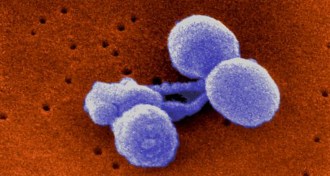 Health & Medicine
Health & MedicineChilling body doesn’t stop bacterial infection
Lowering the body temperature of individuals with severe bacterial meningitis may not help to improve patients’ health and could do more harm than good.
-
 Health & Medicine
Health & MedicineStarting exercise late in life still helps with aging
Becoming and staying active as an older individual can lead to a more years without long-term health conditions.
-
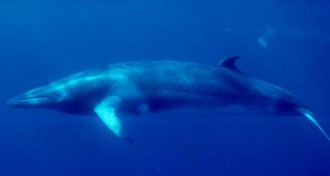 Genetics
GeneticsDNA changes may show how whales adapted to water
Comparing the genetic material of whales has revealed DNA changes that may have helped the animals adapt to aquatic environments.
-
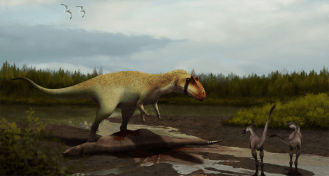 Paleontology
PaleontologyNew dinosaur species joins ranks of giant carnivores
The newly named Siats meekerorum probably roamed what is now Utah about 98 million years ago terrorizing the ancestors of T. rex.
-
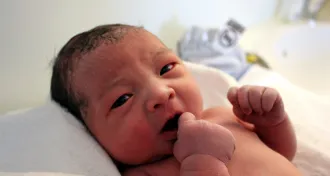 Humans
HumansBabies may have basic body perception at birth
Newborns may enter the world with the basic systems to distinguish their bodies from those of other people.
-
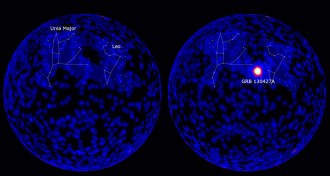 Astronomy
AstronomyBright gamma-ray burst tests idea of event’s origins
High-energy light particles suggest that physicists need to revise their theories explaining the origin of these cosmic blasts.
-
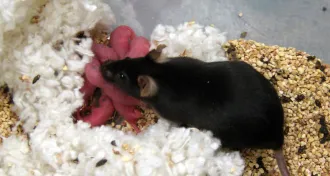 Life
LifeOnly two Y chromosome genes needed for viable mouse sperm
Healthy and fertile mice were born from embryos created using spermlike cells.
-
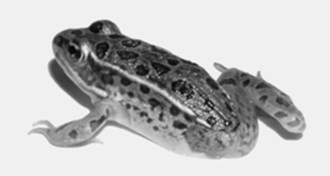 Animals
AnimalsMalformed frogs rarer than thought
Frogs with skin cysts or shortened or missing legs make up only 2 percent of the amphibians collected during a 10-year study.
-

-
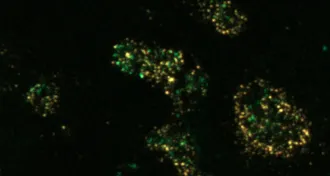 Life
LifeBlood clotting disorder blocked in dogs
Gene therapy stopped severe bleeding in dogs with the blood clotting disorder hemophilia.
-
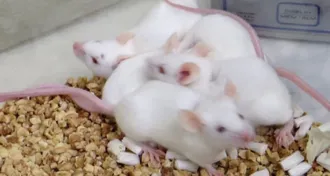 Health & Medicine
Health & MedicineCage temps change tumor growth in mice
Cooler living conditions may influence lab mice's responses to experimental cancer therapies that target the immune system.